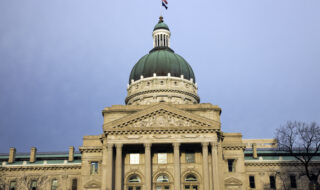Topics:
May 2, 2023 Last Edit: June 5, 2025
IN THE NEWS: NFIB in New York on Minimum Wage Bills Before the Legislature
State:
Get to know NFIB
NFIB is a member-driven organization advocating on behalf of small and independent businesses nationwide.
Related Articles

December 11, 2025
Indiana Legislative Update – December 2025
Learn more about what’s happening in Indianapolis
Read More



December 11, 2025
NFIB TN Member Explains Impact of 20% Small Business Deduction
Benjamin Neale writes in The Tennessean why making it permanent helped his…
Read More


December 11, 2025
Ohio Year-end Legislative Recap
Learn more about what’s happening at the Ohio Statehouse
Read More







